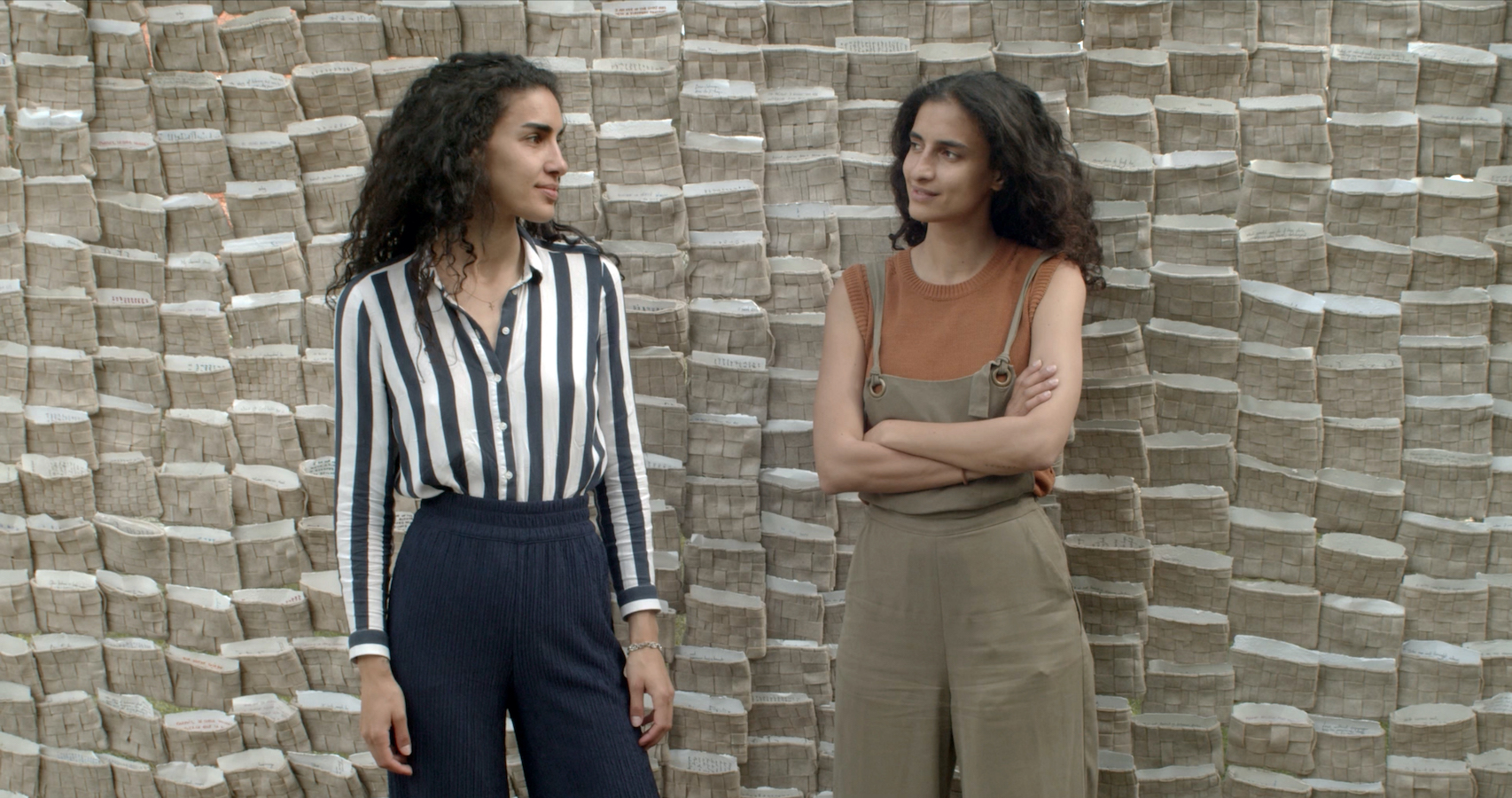DUBAI: Let’s talk about it. That is the simple message the Lebanese-Polish architects and sisters Tessa and Tara Sakhi are hoping to convey through their poignant installation at the Venice Architecture Biennale, running until November 21. “Letters from Beirut” is a six-meter wall of 2,000 handwritten letters. Peeking out of pouches, they reveal personal thoughts of survivors from the Beirut Port blast in August 2020, which claimed over 200 lives.
Although Lebanon has witnessed a series of intense conflicts in its recent past, it is fair to say that this recent calamity, along with a prolonged financial crisis and a non-existent government, has left a mark on the Lebanese unlike any other previous event. “Our life flipped from one day to another. We felt uprooted,” Tara told Arab News. “Our parents told us that during the civil war the country was working economically, but with the pandemic and everything that happened with the central bank, Lebanon has really crashed this time.”

Peeking out of pouches, they reveal personal thoughts of survivors from the Beirut Port blast in August 2020, which claimed over 200 lives. (Supplied)
To start afresh, the sisters — co-founders of the design and architecture firm T Sakhi —decided to move to Venice. The more time they spent there, the more similarities they recognized between the historical centers of Beirut and Venice in terms of their open Mediterranean culture, housing layouts, and proximity to water. “We feel that maybe now we can give much more to Lebanon from outside and hopefully one day we will eventually come back,” said Tessa.
One of their ways of ‘giving’ to the Lebanese community back home is by spreading their voice. “It’s a healing process,” said Tara, who, with her sister, was in Beirut during the explosion. “We didn’t get any acknowledgement. There hasn’t been any active decision made by the government, or economic reforms to make things advanced, to give people a glimpse of hope. Nothing has been done.”

“Letters from Beirut” is a six-meter wall of 2,000 handwritten letters. (Supplied)
To bring their project to life, the sisters set up an online platform, inviting civilians to share their messages, which would later be written out by Tessa and Tara on pieces of recycled paper. The letters — in Arabic, English and French — contain grief, anger, resistance, and stories of love. “How does it feel to be born elsewhere?” one asks. “Why is humanity so destructive?” “No to resilience, yes to resistance.” One simply states: “Beirut kills.”
“It was ups and downs,” remarked Tessa of this cathartic practice of writing the messages out. “Physically, it was very tough. You can feel people’s pain in their letters.” Each pouch also contains a tiny yet symbolic seed of a vegetable or herb, notably Lebanese-grown coriander and zucchini.

Tessa and Tara Sakhi are Lebanese-Polish architects. (Supplied)
The pouches were donated by the UAE-based Irthi Contemporary Craft Council, a heritage-preserving organization that advocates female empowerment socially and economically. Made of felt, the pouches were created by 37 Emirati craftswomen living in Sharjah. Their skilled manner of hand weaving, adhering to similar techniques utilized for producing baskets, is native to their culture. Three Emirati female university students were also involved in producing the recycled pieces of paper.
This isn’t the first time the Sakhis have explored the timely idea of walls and their restrictive, political implications in their body of work. “It’s an element of separation and segregation that’s used in Lebanon a lot,” explained Tara. “We want to actually take that and turn it into our advantage and see how we can communicate with a surface of separation.”

The pouches were donated by the UAE-based Irthi Contemporary Craft Council, a heritage-preserving organization that advocates female empowerment socially and economically. (Supplied)
“Letters from Beirut” is meant to be an interactive and uniting memorial, where biennale visitors can take a pouch until they all disappear from the wall. In a way, this engagement enables the victims’ voices to be heard and remembered around the world. “There were people who decided to frame the letters in their homes,” noted Tara. “For us, this is incredibly beautiful to see that our creation has a life that’s continuing.” Visitors are also invited to scan a barcode at the site, allowing them to donate money to Lebanese NGOs that are supporting restoration efforts and children’s education in post-blast Beirut.
The installation is a response to the central theme of the biennale: How will we live together? In the case of Lebanon, according to the Sakhis, the way to live together is for citizens of different generations and professional backgrounds to collaborate — a sense of unity that was heightened in the aftermath of the blast. It’s about sharing ideas and having conversations again.







0 التعليقات:
إرسال تعليق